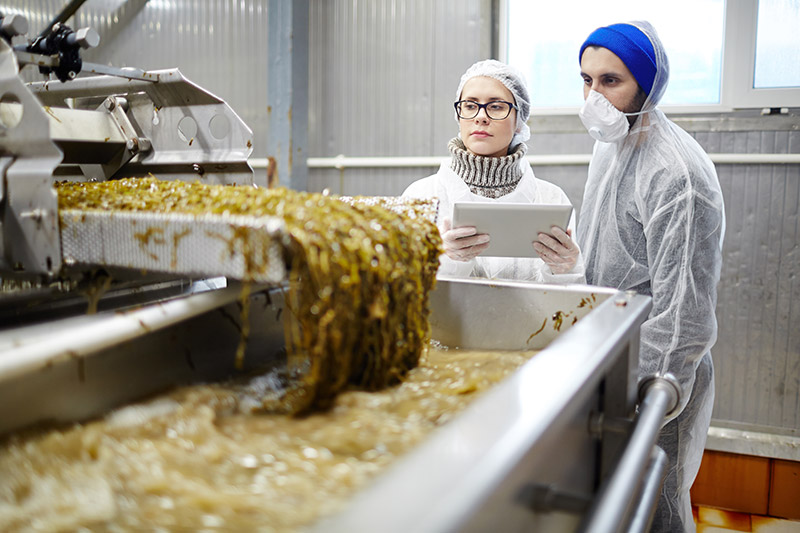Running a food processing and distribution business means that you shouldn’t only invest in manufacturing equipment. It’s equally important to ensure that your products are handled properly during transfer and stored appropriately. Proper food storage and handling help preserve the quality and nutritional value of your products, and prevent spoilage and waste of raw materials.
If you want to have a successful food business, here’s a list of essential food processing and distribution equipment that should be in your warehouse and logistics processes:
- Pallet Jack
For large packed goods, you need to place them on pallets for easier movement. A pallet jack is an essential tool in your storage unit that makes loading and unloading simpler. There are manual and electric pallet jacks available, both offering significant utility.
If your workers spend considerable time loading or unloading a truck’s cargo, it could be because they make multiple trips. With a pallet jack, you can save time and increase productivity. Workers can navigate aisles easily while transporting heavy loads.
- Food Metal Detector
Storing food products for extended periods can expose them to contaminants, including metals, especially with equipment present in the warehouse. To maintain product quality and protect your reputation, companies have begun using metal detection technology in their product lines.
Food metal detectors are used to detect and remove metal contaminants from food products. Detecting such particles can save your business from costly recalls and protect established manufacturers from reputational damage.
Metal detectors are a less expensive alternative to x-ray inspection systems and come with lower ownership costs. They can also meet the requirements of Hazard Analysis Critical Control Point (HACCP) standards.
The ability of a food metal detector to detect contaminants before products reach consumers is a significant advantage. It helps prevent legal issues related to the distribution of unsafe products.
- Conveyor
If you have a large storage facility, you’ll need equipment that can move goods efficiently without human intervention at every step. This is where a conveyor system proves invaluable in your storage operations.
Conveyors, originally used to transport goods on ships, are now widely used in various industries, including the food and beverage sectors.
A conveyor system has revolutionized food industry operations by speeding up the transportation of goods while reducing manual labor and handling. It enhances workplace safety and boosts productivity by minimizing the physical strain on workers.
With the right conveyor system, a food processing facility becomes safer and more efficient. Fewer workers are needed, and the risk of injuries from heavy lifting is reduced. Conveyors can also maintain quality standards by controlling the speed at which materials are moved.
There are several types of conveyors ideal for the food industry. One example is the tubular drag conveyor system, designed to transport food materials efficiently, safely, and without contamination.
In the food and beverage industry, materials handling equipment must be free from contaminants and easy to clean. Fortunately, tubular conveyors are well-suited for moving a wide range of products while maintaining strict hygiene standards.
- Forklift
You should also invest in a forklift, especially if your products require cold storage or exposure to salt.
A forklift is essential for moving heavy objects with ease, boosting worker productivity, and minimizing physical strain. It allows staff to quickly and efficiently transport materials across the warehouse.
In addition to speeding up operations, forklifts can lift materials to higher, hard-to-reach places, eliminating the need for manual handling and reducing risks of injury.
- Power Stacker
Similar to a forklift, a power stacker helps with loading and unloading goods. However, power stackers are more suited for lighter loads and single-shift operations.
Power stackers are more compact than forklifts, making them ideal for warehouses with limited space. They’re also useful for quickly loading goods into delivery vans or unloading raw materials.
Final Thoughts
Proper food storage and handling are critical for the success of your food business. Investing in the right tools ensures your products are stored and distributed efficiently, preserving their freshness and quality. These tools also make your operations faster and more efficient to meet customer demand.
When purchasing food processing and distribution equipment, prioritize sanitation. Opt for materials like metal surfaces that don’t leach harmful substances or harbor contaminants. Investing in high-quality equipment also minimizes downtime, allowing you to maintain productivity without frequent repairs.
